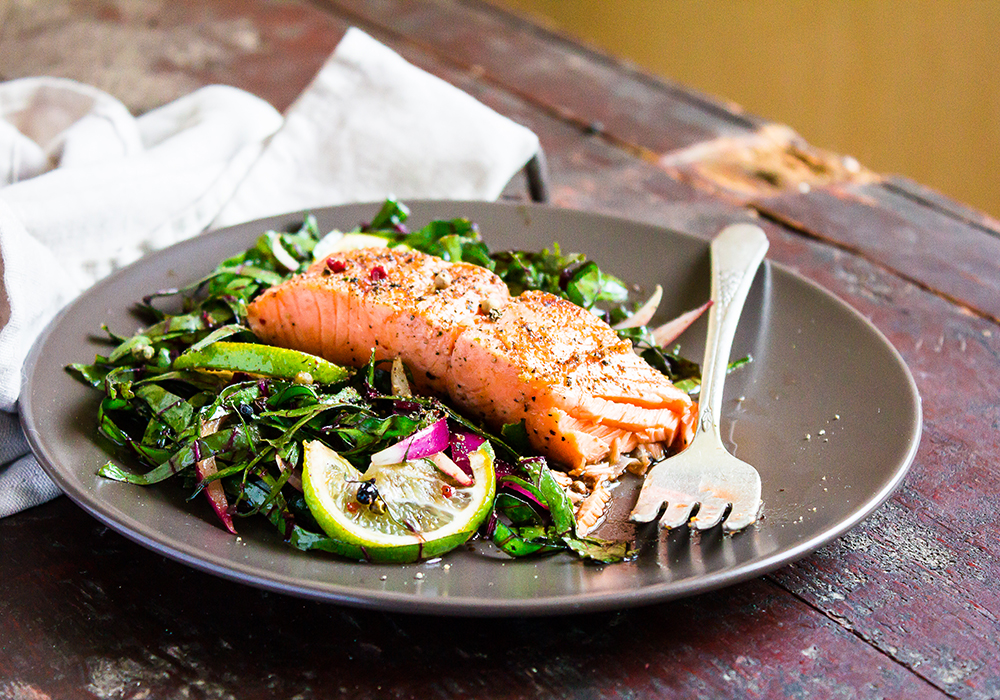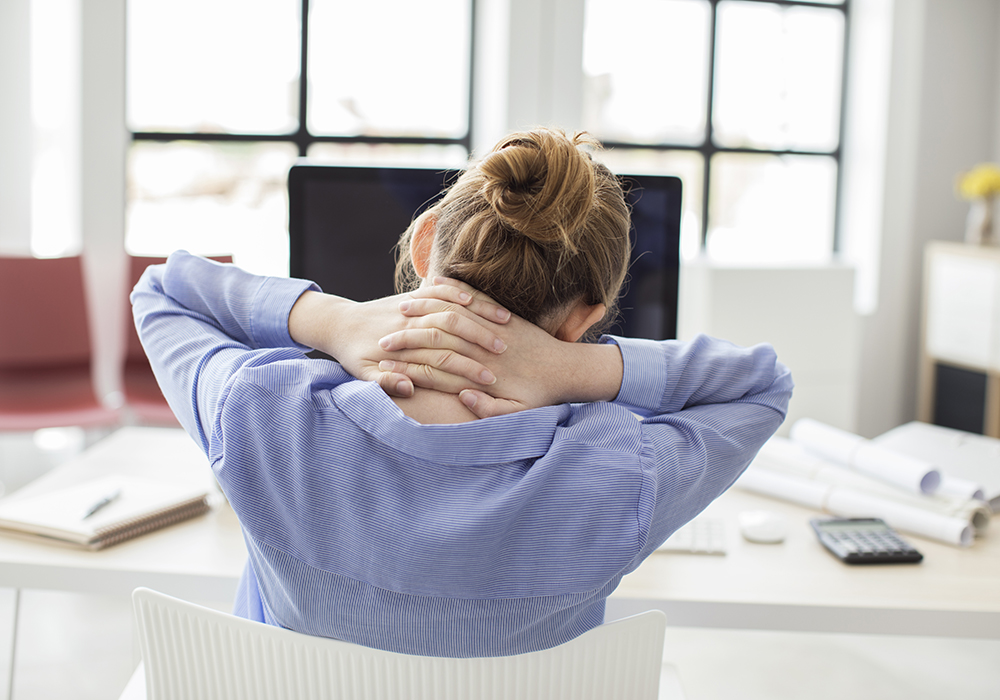Your need-to-knows about the link between vitamin D and Coronavirus: does the supplement really boost your immunity?
The government advised that you take the supplement.

The government advised that you take the supplement.
Stats show that one in five Brits are vitamin D deficient, the equivalent of 13 million people. As per the NHS website, you should be taking 10 micrograms of vitamin D every day, especially in the winter, when you're not getting as much daylight. But what's the link between vitamin D and coronavirus?
FYI, that's about a portion of salmon or a serving of mushrooms (the only plant source of the vitamin). It's worth noting here: some health officials want Brits to take the supplement year-round, especially if you're not getting outdoors as much as usual.
Why? Well, while research is still in the early stages, some studies have shown that those with a vitamin D deficiency are more likely to catch coronavirus and as a result, get seriously ill or die. To decide on the matter once and for all, Queen Mary University of London is conducting a study of 5,000 volunteers this autumn.
But what is vitamin D, why is it so important to take, especially during winter, and how would the experts advise you to supplement it during the gloomier months?
Get comfy. We've been chatting to two of the UK's leading experts, a doctor, and a nutritionist, to bring you your complete guide to vitamin D. Read on for the final verdict on whether it could really help protect you against coronavirus, and don't miss our guides to vitamin D foods and vitamin D recipes, while you're here.
Your complete guide to Vitamin D and coronavirus
What is vitamin D?
More of an essential component of your body than a mere vitamin, according to doctor Luke Powles, Associate Clinical Director at Bupa Health Clinics. "You need vitamin D to help regulate the amount of calcium in your body. This helps build strong and healthy bones," he explains. "It’s essential to keep your immune system in good working order. Plus, it can even help to improve brain development and function." So, not much then..
Marie Claire Newsletter
Celebrity news, beauty, fashion advice, and fascinating features, delivered straight to your inbox!
Why is vitamin D so important?
Nutritionist Rob Hobson shares that vitamin D has a number of benefits, including:
- Maintaining healthy bones
- Maintaining healthy teeth
- Keeping your neuromuscular and immune systems working well
- Helping your body absorb calcium
- Boosting immunity
- Helping muscle movement.

What's the link between vitamin D and coronavirus?
Good question. While there is no definitive answers to this, last year, former Health Secretary Matt Hancock called for further research into the link as many of those in hospital with more severe cases of COVID-19 were seen to have low levels of vitamin D (otherwise known as a vitamin D deficiency).
Similarly, one study published in the British Medical Journal, where researchers found vit D supplementation reduced the risk of contracting respiratory tract infections. Fun fact: those who took a daily dose were 19% less likely to get an infection. Those who were vit d deficient and took a daily dose were 70% less likely to get an infection. This was based on data from over 10,000 patients.
What are the main symptoms of vitamin D deficiency?
"Vitamin D deficiency is the most common nutritional deficiency," Luke shares. Rob agrees, adding that the deficiency “is estimated to affect 13% of the world’s population".
"If you don’t get enough vitamin D, it can lead to a condition called osteomalacia (softening of the bones). It may also increase your risk of diabetes and heart disease, and possibly some types of cancer," Luke explains.
Vitamin D deficiency can present itself in the form of:
- Fatigue and tiredness
- Muscle weakness
- Low grade depression
- Recurrent infections, like frequent colds
- Muscle aches and pains
- Bone pain
"In severe cases, it can cause rickets in young children and bone softening in adults, especially those in care or who spend a lot of time indoors," Rob adds. With that in mind, both experts stress that it’s extra important to make sure you know you’re getting enough of it in your day-to-day diet.
Luke stresses if you think you are experiencing symptoms of vitamin D deficiency, speak to your GP or local pharmacist, as they can recommend an expert-advised course of action for you.

Where do we get vitamin D from?
In short—the sun. Which is why, come wintertime, it's extra important to either supplement vitamin D or make sure you're eating enough every day.
"Your main source of vitamin D comes from the sun, and it’s the best way to boost your levels naturally," Luke expands.
"Depending on your skin type and sun strength, just 30 minutes of sun exposure every day during the summer months gives you enough vitamin D for the year," he adds. But if you didn't get out much this summer - that's, ahem, most of us, thanks to the pandemic - then you may be falling a little short.
Rob agrees: “Sunlight helps our body to make vitamin D. However, during the lockdown period, many people were unable to get outside enough to get adequate sunlight exposure. This, as explained, could lead to deficiency."
What foods are a good source of vitamin D?
Keen to eat your vitamins, not supplement them? There are loads of vit D rich foods that'll provide you with a good source of the stuff according to Rob, including:
- Oily fish, like salmon and sardines
- Egg yolk
- Cheese
- Fortified foods
- Plant-based spreads, like Flora
- Mushrooms.
If you're keen to read more about the types of vitamin D foods, do read our guide from nutritional therapist Madeleine Shaw. Knowledge is power, after all.
What are the different types of vitamin D?
Ah—that all-important question. "There are two main kinds of vitamin D - vitamin D2 and vitamin D3," explains Luke. "When we’re exposed to sunlight, our skin can produce its own vitamin D3. Foods – like milk, cereal and salmon - are all good sources of vitamin D2. It doesn’t really matter what type of vitamin D you’re getting, as long as you’re having enough to keep your body healthy". Hear, hear.
Note here if you're considering supplementing: Luke stresses that it’s important to only take the recommended dose. 10 micrograms a day will be enough for most people.
If you’re experiencing any symptoms like fatigue and muscle ache, do speak to your doctor, as they can check your vitamin D levels with a blood test and discuss whether a supplement is right for you. Otherwise, we eagerly await the news as to whether it can help safeguard against corona or not...

Ally Head is Marie Claire UK's Senior Health and Sustainability Editor, nine-time marathoner, and Boston Qualifying runner. Day-to-day, she heads up all strategy for her pillars, working across commissioning, features, and e-commerce, reporting on the latest health updates, writing the must-read wellness content, and rounding up the genuinely sustainable and squat-proof gym leggings worth *adding to basket*. She also spearheads the brand's annual Women in Sport covers, interviewing and shooting the likes of Mary Earps, Millie Bright, Daryll Neita, and Lavaia Nielsen. She's won a BSME for her sustainability work, regularly hosts panels and presents for events like the Sustainability Awards, and is a stickler for a strong stat, too, seeing over nine million total impressions on the January 2023 Wellness Issue she oversaw. Follow Ally on Instagram for more or get in touch.


